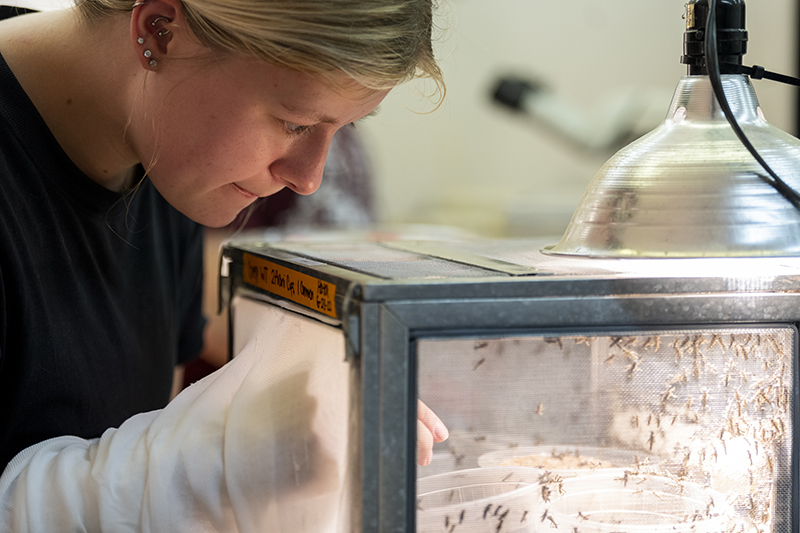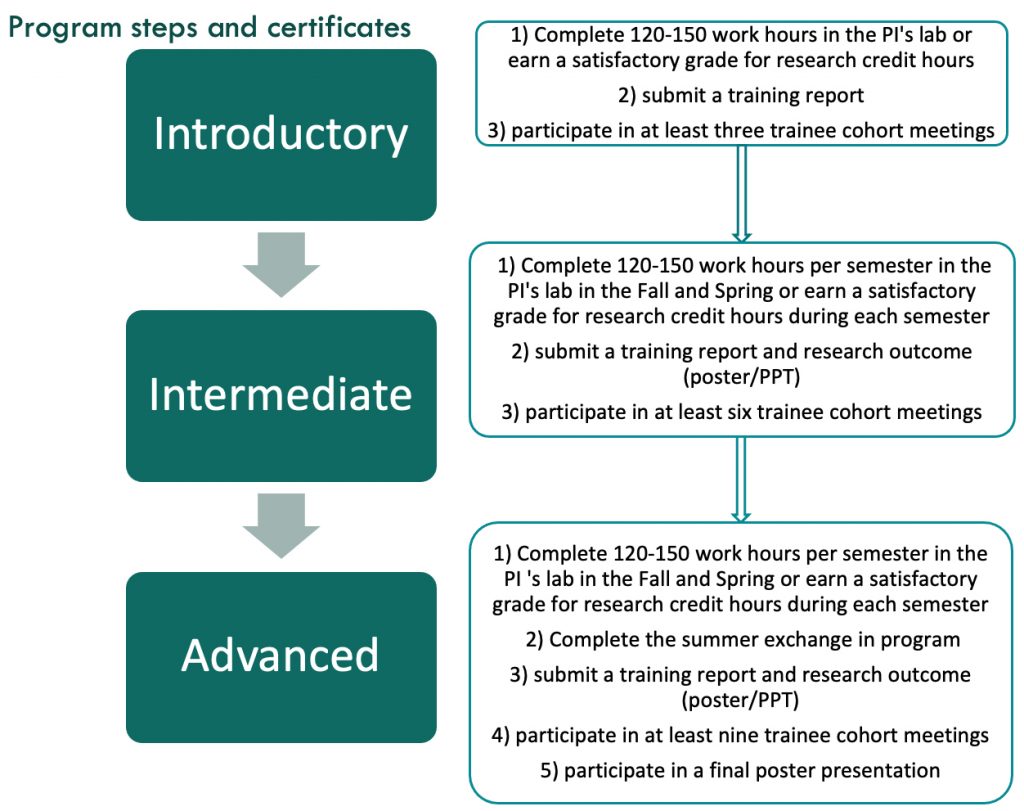
Future Integrative Scholars in Training (FIST) is an undergraduate training program developed as part of the BPRI that aims to provide interdisciplinary research experience for undergraduates who plan to pursue careers in biological sciences. It provides mentored research training and offers three different types of research experiences depending on the student’s interest. Undergraduates will have opportunities to select research themes for training based on their interests and pending availability at their local university. All research activities are centered around a phenomenon known as phenotypic plasticity, for which the BPRI uses grasshoppers and locusts as a model system to study.
Objectives of the FIST training program
- Provide interdisciplinary research training for undergraduate students; upon completion students will receive a FIST level certificate
- Teach trainees how to develop hypotheses, collect and interpret data, formulate research reports, and present research findings.
- Expose trainees to networking opportunities within the BPRI institutions and the Global Locust Initiative (GLI) network.
BPRI Partnering Institution who participated in FIST program
- Arizona State University (ASU)
- Baylor College of Medicine/Rice University (BCM/Rice)
- Southern Illinois University Edwardsville (SIUE)
- Texas A&M University (TAMU)
- Washington University in St. Louis (WUSTL)
Expected Benefits
- Paid research for one to two semesters (9-10hrs/week); alternatively, research credits hours can be earned
- Opportunity to apply for a summer research exchange program
- Interdisciplinary research experience
- Potential opportunities to co-author journal articles
- Present research results
- Networking opportunities within BPRI institutions and the GLI network
- Earn a certificate after completing the research experience
- Professional development opportunities and career guidance
Program Requirements
Undergraduate trainees will complete a minimum of 9 hours per week per semester. During the summer, some trainees will participate in full-time training at exchange labs. Trainees will communicate with their primary mentor about the certificate level they aim to achieve and the type of compensation they wish to receive (paid student work or research credit-based).

Who is eligible?
- Undergraduate students who are enrolled in biological programs or STEM programs at five partnering institutions: Arizona State University (ASU), Baylor College of Medicine/Rice University (BCM/Rice), Southern Illinois University Edwardsville (SIUE), Texas A&M University (TAMU), Washington University in St. Louis (WUSTL)
- Undergraduate students who can commit 1 to 3 semesters to the training program
- Interested in interdisciplinary training in biology and aim to pursue careers in biological sciences
- Commitment to work for 9-10 hours per week
Students who do not have prior lab experience and/or students from underrepresented minorities are highly encouraged to apply for this program
Application process
Interested students should submit an application to the BPRI using this link or the QR code below. The application deadline is August 9, 2022. Selected candidates will be contacted after two weeks of the application deadline. Expected starting date end of August 2022.

Full Program Guide
Download the Fist Program Guide for detailed information about the program.
Contact Information
General information on the FIST program
Dr. Millicent Oyugi (millicent.oyugi@ag.tamu.edu)
Institution-Specific Information
- Arizona State University: Dr. Arianne Cease (acease@asu.edu)
- Baylor College of Medicine: Dr. Herman Dierick (dierick@bcm.edu)
- Southern Illinois University Edwardsville: Dr. Brittany Peterson (bripete@siue.edu)
- Texas A&M University: Dr. Hojun Song (Hojun.Song@tamu.edu)
- Washington University in St. Louis: Dr. Barani Raman (barani@wustl.edu)
For additional information or clarification, please contact the individual PI and/or Dr. Millicent Oyugi. Use the email heading “BPRI-FIST program application [your surname].”